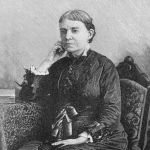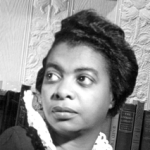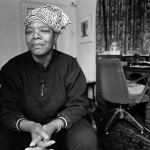And an orator said, Speak to us of Free-
dom.
And he answered:
At the city gate and by your fireside I
have seen you prostrate yourself and worship
your own freedom,
Even as slaves humble themselves before
a tyrant and praise him though he slays
them.
Ay, in the grove of the temple and in
the shadow of the citadel I have seen the
freest among you wear their freedom as a
yoke and a handcuff.
And my heart bled within me; for you
can only be free when even the desire of
seeking freedom becomes a harness to you,
and when you cease to speak of freedom
as a goal and a fulfilment.
You shall be free indeed when your days
are not without a care nor your nights with-
out a want and a grief,
But rather when these things girdle your
life and yet you rise above them naked and
unbound.
And how shall you rise beyond your
days and nights unless you break the chains
which you at the dawn of your under-
standing have fastened around your noon
hour?
In truth that which you call freedom is
the strongest of these chains, though its
links glitter in the sun and dazzle your eyes.
And what is it but fragments of your own
self you would discard that you may become
free?
If it is an unjust law you would abolish,
that law was written with your own hand
upon your own forehead.
You cannot erase it by burning your law
books nor by washing the foreheads of your
judges, though you pour the sea upon them.
And if it is a despot you would dethrone,
see first that his throne erected within you is
destroyed.
For how can a tyrant rule the free and
the proud, but for a tyranny in their own
freedom and a shame in their own pride?
And if it is a care you would cast off, that
care has been chosen by you rather than
imposed upon you.
And if it is a fear you would dispel, the
seat of that fear is in your heart and not in
the hand of the feared.
Verily all things move within your being
in constant half embrace, the desired and
the dreaded, the repugnant and the cherished,
the pursued and that which you would
escape.
These things move within you as lights
and shadows in pairs that cling.
And when the shadow fades and is no
more, the light that lingers becomes a
shadow to another light.
And thus your freedom when it loses its
fetters becomes itself the fetter of a greater
freedom.



















Comment form: